

It’s become an unsettling fact of political life that as election turnouts dwindle, campaign spending skyrockets. Los Angeles’ recently concluded school board races, which drew a paltry 7.6 percent of potential voters, underscored this point. Ref Rodriguez, who unseated the District 5 incumbent, received most of the $2.2 million contributed by political action committees (PACs) controlled by the California Charter Schools Association Advocates. Rodriguez has co-created several charter schools and his backers, unsurprisingly, came from that community. Among the familiar local names of extreme wealth and influence were Eli Broad, Richard Riordan and William Bloomfield. Equally familiar to followers of school privatization were more distant funders such as Netflix CEO Reed Hastings, Walmart heir Jim Walton, Laurene Powell Jobs, the Gap Inc.’s Fisher family members and former New York Mayor Michael Bloomberg.
Rounding out Rodriguez’s cascade of thousand-dollar checks were names associated with high-powered investment firms,
» Read more about: Is Voter Turnoff Inviting a Progressive Rollback? »
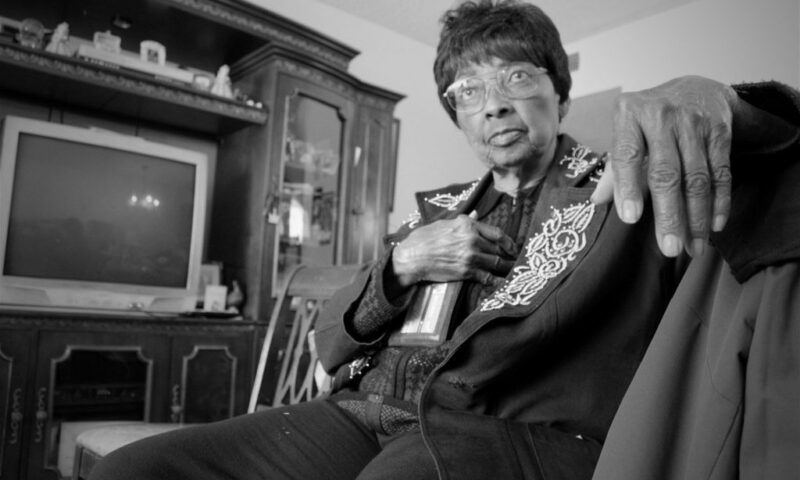

“The Lord has always taken care of me,” says Catherine Green, as she emerges from a moment of reflection and peers intently around her living room. On a plaque by the kitchen are words from Isaiah: “No weapon formed against me shall prosper.” She says the quote has always given her strength in difficult times.
By the end of May, the 90-year-old Green will have tendered a reluctant, pain-filled goodbye to the Golden State and the familiar comforts of the Los Angeles apartment she has made into a home over the last 30 years. She is one of dozens of Boulevard Villa residents—many of whom are elderly, disabled or on Section 8 housing vouchers— who are being unceremoniously evicted from their 43-unit Mid-City apartment complex by its new owners, Lafayette Square Apt. LLC. The eviction of every resident of 1625 Crenshaw Boulevard,
» Read more about: Evicted Crenshaw Tenant: 'This Ain’t Nothing But Greed' »


On Wednesday, May 20, the day after a Santa Barbara County fire inspector discovered a stream of contaminated crude oil flowing onto a pristine segment of the Southern California coast, a group of researchers published a study linking the 2010 Deepwater Horizon oil spill to a mass die-off of bottlenose dolphins. The 46 carcasses examined for the study had suffered from “rare, life-threatening and chronic adrenal gland and lung diseases.” The researchers concluded that these diseases were “consistent with exposure to petroleum compounds as seen in other mammals.”
46 years after the first oil spill that wrecked the Santa Barbara coast, not much has changed
Hearing this, the casual observer might say duh, and wonder why such a study makes the news at this late date, a full five years after British Petroleum’s oil rig exploded and sank,
» Read more about: Slick With Denial: 'Self-Regulation' and the Latest Oil Spill »
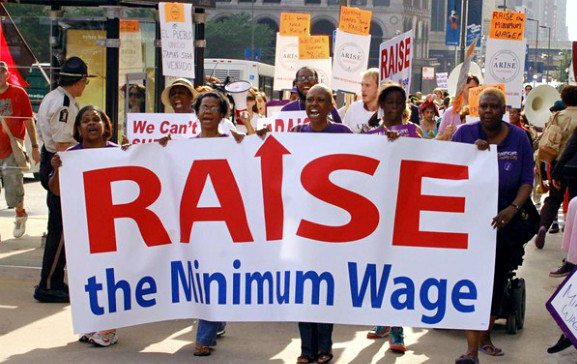
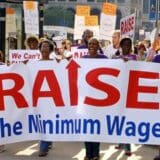
On Tuesday, the Los Angeles City Council voted 14-1 to adopt a citywide minimum wage of $15/hour by 2020. The next day, marching behind a giant banner that read, “McDonald’s: $15 and Union Rights, Not Food Stamps,” 5,000 cooks and cashiers show up at the company’s corporate headquarters in Oak Brook, Illinois, to kick off the largest-ever protest to hit the burger giant’s annual shareholder meeting.
These events represent the two battlegrounds in the growing war over wages taking place across the country. One strategy focuses on getting elected officials in local and state governments to adopt minimum wages above the federal level. The other strategy involves putting pressure on major employees — typically highly visible companies that depend on positive public relations to gain consumers’ dollars — to raise the wages of their employees.
The two strategies complement rather than compete with each other,


To the west of the Sierra Nevada Mountains, in California’s vast, dry San Joaquin Valley, a catastrophe is unfolding. Drought-stricken growers, deprived of surface water for irrigation, are pumping ancient aquifers at a rate that will eventually extinguish them forever, should the water shortage persist. About 120 miles away, on the opposite side of the snow-starved mountain range, sits the Owens Valley. Here, the drought is merely an aggravating factor in a water crisis that began more than a century ago. In 1913, William Mulholland and the Los Angeles Department of Water and Power completed the aqueduct that tapped the river that once irrigated the high desert basin and diverted it to the citrus groves of the San Fernando Valley, 200 miles to the south. Then in 1970, the LADWP completed its second aqueduct and began pumping the valley’s groundwater until all but a single major spring had run dry.
» Read more about: Cursed With Water: Owens Valley’s Toxic Surprise »
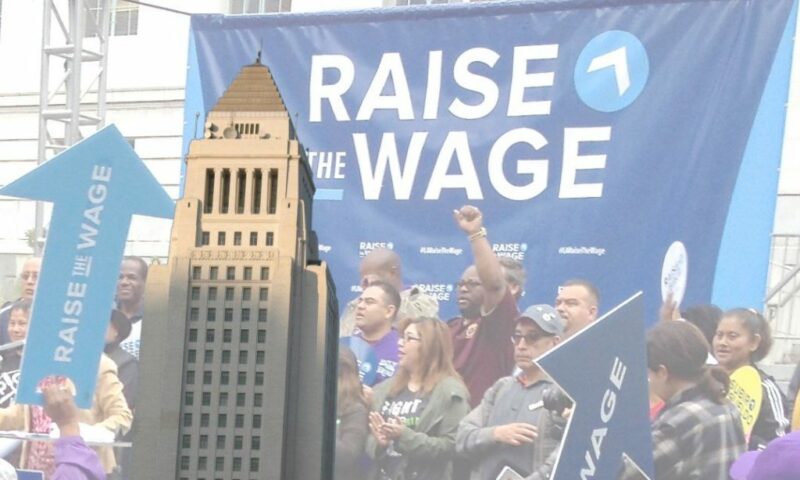
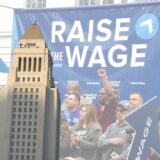
Fair wage advocates won a big victory Tuesday, when the Los Angeles City Council voted 14-1 to advance a measure that would gradually boost the base pay in the City of Los Angeles to $15 an hour by 2020. City Attorney Mike Feuer will now be asked to draft a minimum-wage ordinance that the council will vote upon to make the measure law.
The legislation begins by raising the current wage of $9 an hour to $10.50 in July of 2016—after that the hourly wage would go up each year by one dollar. The vote could lead to making Los Angeles the largest city in the nation to set a minimum wage standard above the federal level, one that will benefit some 600,000 employees in the city—some 40 percent of L.A.’s workforce. The decision also adds heft and momentum to efforts nationally to raise the minimum wage for the nation’s lowest-paid workers.


Yoel Matute had worked at a Santa Monica car wash for seven years and was upset because he believed he wasn’t being paid for all the hours he worked. So in 2012 he decided to sue in court to recover his wages.
Matute soon got an unwelcome surprise. His employer attempted to enforce an arbitration agreement – an agreement Matute didn’t even know he had signed — preventing him from filing a lawsuit. Instead, the agreement mandated that the dispute be heard in arbitration, an out-of-court process that generally favors employers over workers like Matute.
When he had originally applied for his job Matute was handed what he thought was a work application. Some parts of the document were in Spanish, others in English. Matute, who is from Honduras and can read little Spanish and virtually no English, was given just a few minutes to review it, and he did not understand any of the sections in English.
» Read more about: Arbitration Clauses: More Job Seekers Are Signing on a Crooked Dotted Line »
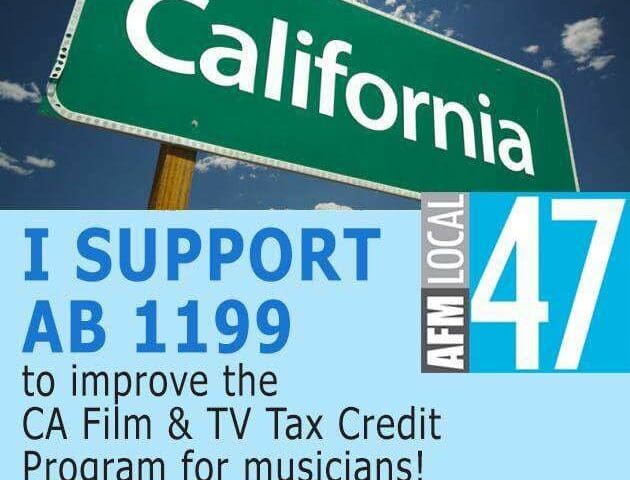
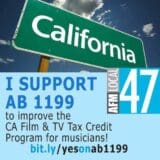
Last week California began accepting applications for the first round of the new film and TV tax credit, which policy makers in Sacramento had beefed up to try and lure film production back to the state. The legislature passed a five-year, $1.65 billion film tax incentive program last year, and with the revamped tax credit program up and running, many entertainment workers throughout California are feeling something not felt in a long time: Hope. For the first time in 15 years, the program feels better equipped to keep our suffering entertainment industry from flatlining and to revive the iconic “Hollywood brand” to its former greatness.
For every dollar a musician earns, nearly $2 are put into the California economy.
However, not everyone has cause to celebrate. Thousands of California’s post-production workers, including recording musicians, are still shortchanged by the tax credit program,
» Read more about: A Bill to Save Jobs for California Musicians »


A common refrain among opponents of clean air, water and endangered species is that environmental regulation kills jobs. From some perspectives, they’re occasionally right: Go talk to a coal miner in Kentucky staring down the Obama administration’s new rules for reducing greenhouse gas emissions from new power plants, or an Oregon tree-feller on the topic of spotted owls. When rules to protect nature and public health kick in, whole economies sometimes die.
But it’s also true that people living in poverty suffer disproportionately from industrial pollution, and that wealth benefits from the long-term protection of resources — without restraint, after all, one day there’d be no forests to log. So a United Nations’ Brundtland Commission in 1987 proposed another way of looking at the situation, one that wouldn’t pit laudable values against each other, but would instead regard economic and environmental health as inseparable. The Brundtland participants coined the term “sustainable development” and,
» Read more about: Jobs & the Environment: An L.A. County Report Card »


“Absolutely not. In fact, if I could increase it, I would,” said Nestlé Waters North America CEO Tim Brown Wednesday on KPCC, when asked by NASA hydrologist Jay Famiglietti whether he would ever consider moving his water bottling operations out of drought-stricken California, like Starbucks is doing. By Brown’s estimate, Nestlé’s bottling business currently uses 700,000,000 gallons of California groundwater a year.
Nestlé isn’t the only company draining California’s aquifers and shipping the water out of state in the middle of a megadrought. In fact, as I reported here this week, the Crystal Geyser Water Company is getting ready to open up a brand new operation in Mount Shasta, at the headwaters of the Sacramento River. And, just down the road from the Crystal Geyser site, plans are being drawn up to build yet another,
» Read more about: 700 Million Gallons of California Groundwater Isn't Enough for Nestlé »